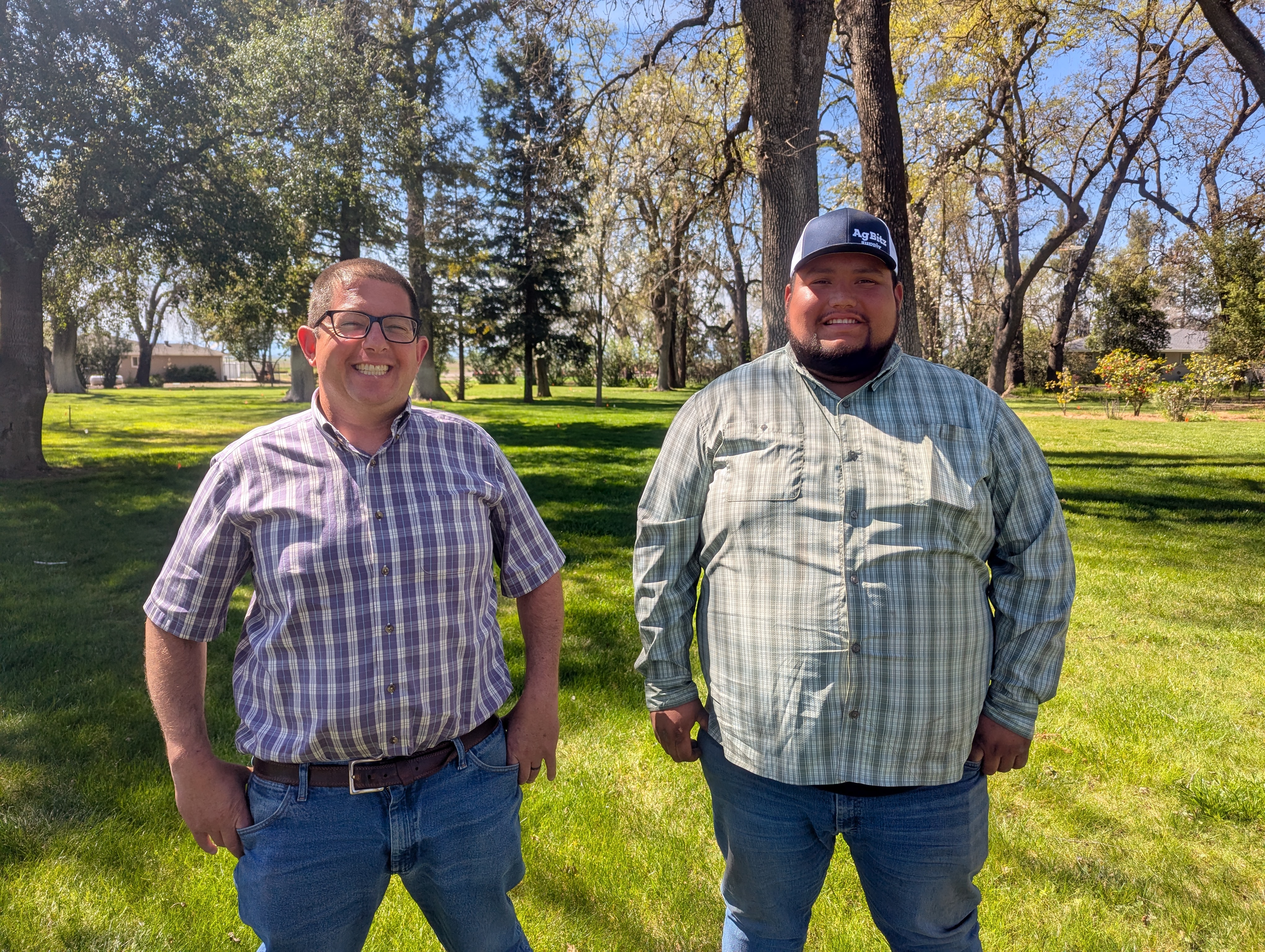APPRENTICESHIP
Agricultural Apprenticeship Pays Off for Employers

"Javier knows his stuff," Bruno explained. "It was a way to formalize different information sources and help him pull things together." Today, Cervantes serves as field operations supervisor, overseeing harvest planning and crew coordination across the farm's diverse crops including rice, wheat, alfalfa, and watermelon.
Bruno's initial feelings about the apprenticeship program quickly dissolved when he saw the practical curriculum. "Again, I was totally skeptical about it going in, even though I thought I had to give it a chance," he said. The program proved to be "really good—a good practical foundation" that built on skills Cervantes already possessed.
The Center for Land-Based Learning's Farm and Ranch Manager Apprenticeship eliminated many of Bruno’s concerns by shouldering educational costs and curriculum development. For 30 years, the Center has been committed to inspiring, educating, and cultivating the next generation of farmers, agricultural professionals, and environmental stewards. Through hands-on programs, the organization has introduced over 1,500 young people to career pathways in agriculture—from sustainable farming and agribusiness to conservation and ecosystem restoration.
"Having an organization able to help underwrite and get employers engaged is huge," Bruno said. "That was huge for us."
Unlike traditional education that removes workers from operations, the two-year apprenticeship allowed Cervantes to continue working full-time while applying classroom concepts directly to farm operations. Over two years, apprentices' complete coursework in Integrated Pest Management, Irrigation Management, Introduction to Soil Science, Introduction to Plant Science, and Leadership & Management, along with on-the-job training in targeted work process areas such as tractor training, marketing, and pest and weed management.
"They show you how everything works with the plants," Cervantes said, describing how the plant science course enhanced his understanding. The integrated pest management class proved particularly valuable, helping him earn his Private Applicator Certificate and Qualified Applicator License—credentials Bruno had been encouraging for years.
"It was my plan at the beginning before the program," Cervantes noted about pursuing certifications, explaining how the apprenticeship gave him the confidence and knowledge to finally take the tests.
"The stuff you were learning, you were able to just directly apply," Bruno said, noting improvements in fertilizer and pest management decisions. The program also addressed language barriers that often prevent skill development, with some instruction provided in Spanish.
Agricultural chemicals and materials represent farms' largest expense after labor, making knowledgeable decision-makers invaluable. "Having somebody that's responsible and understands what we're talking about is huge," Bruno said.
The apprenticeship model can be a real benefit for incumbent workers like Cervantes, whom Bruno had identified as having management potential. Rather than recruiting externally or hoping employees would pursue education independently, apprenticeship provided a structured pathway to develop existing talent. Over 95% of the Center's program graduates continue to work in agriculture, holding titles such as Director of Crop Production, Farm Director, and Foreman.
"There's plenty of people that aren't going to go the traditional route for whatever reason," Bruno noted. "This is a great way to get foundational education and skills that are super applicable."
Bruno's experience reflects broader industry needs as California agriculture faces workforce challenges. The apprenticeship model addresses critical gaps while providing employers with skilled, certified professionals who understand their specific operations. Through partnerships with AgHire and with local farmers, the Center for Land-Based Learning advances workforce development and expands access to meaningful careers across California's diverse agricultural community.
"If we had somebody else that showed the interest, I think it would be worthwhile for the farm to invest in it," said Bruno, who now confidently recommends apprenticeship to other agricultural employers seeking to develop their workforce strategically.
August 2025

